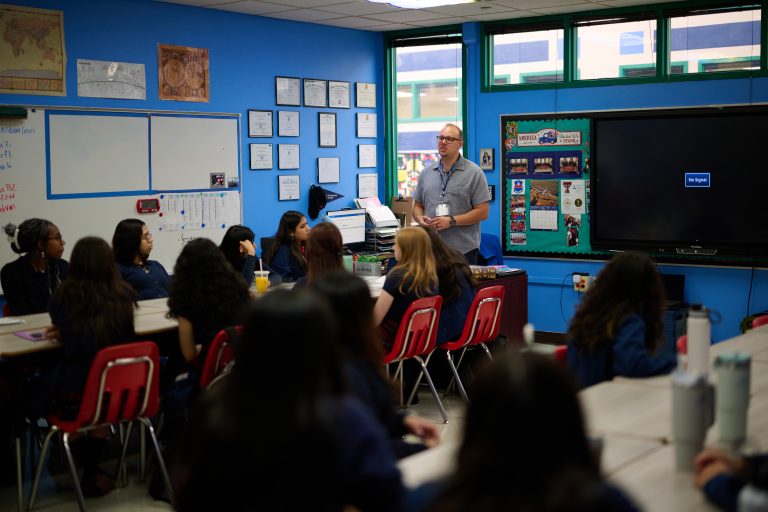Dallas ISD is proving its role as a leader in innovation by launching a cutting-edge artificial intelligence initiative, developed in partnership with Educate Texas, an initiative of the Communities Foundation of Texas.
Designed to improve instruction and student outcomes, the program will offer personalized feedback so teachers can better support students with new math concepts. It specifically helps educators improve teaching methods when students struggle to grasp challenging math concepts
“Our leadership team has a readiness to innovate in this space. We value learning new tools to set our teachers and students up for success,” said Angie Gaylord, chief academic officer. “We hope this tool builds our teachers’ confidence in teaching math concepts in middle school including rigorous algebraic thinking.”
Made possible through a $1.7 million grant from the Texas Instruments Foundation to Educate Texas, the district will soon have access to an AI-powered tool for middle school math teachers.
“Dallas ISD has shown incredible leadership and commitment to serving an incredibly unique community of students with high-quality instruction and care,” said Kerri Briggs, executive director of Educate Texas. “Our hope is that Dallas ISD will be both a thought partner and leader in how districts can pilot, adopt and scale the most effective AI tools to ensure our students are ready for the future with AI.”
Andy Smith, executive director of the TI Foundation, said teacher effectiveness and investment in middle school math were some of the reasons the organization wanted to support the initiative.
“Middle school math is an indicator for future success in high school and college-level math, with many of the concepts for later courses being established in classes like pre-algebra and algebra I,” he said. “Teachers play a huge role in ensuring students learn middle school math concepts, which are the basis of learning for more advanced high school math classes, such as calculus. This in turn sets students up for postsecondary success, regardless of which higher learning or career path they choose.”
This also ensures all students have access to the latest innovative teaching tools, Briggs added.
“AI can be a great equalizer and can help close the achievement gap, so long as students and educators have training and access to it,” she said.
As the programs are rolled out, Dallas ISD is working to create professional development instruction for all teachers, so they understand, and feel empowered, to use the technology.
“By offering real-time guidance and constructive suggestions, this project aims to foster continuous professional development, ultimately leading to improved student comprehension and academic achievement in mathematics,” Gaylord said. “I am excited to see middle school teachers excited about supporting students and see them thrive.”

